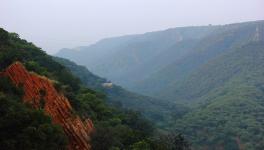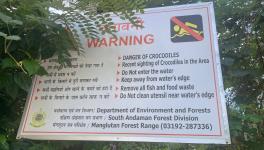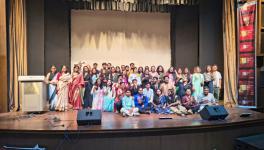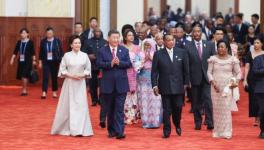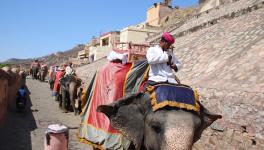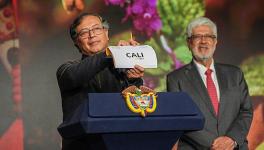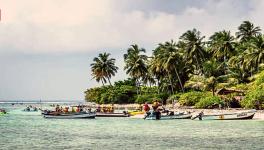Once Upon a Time in Lakshadweep…
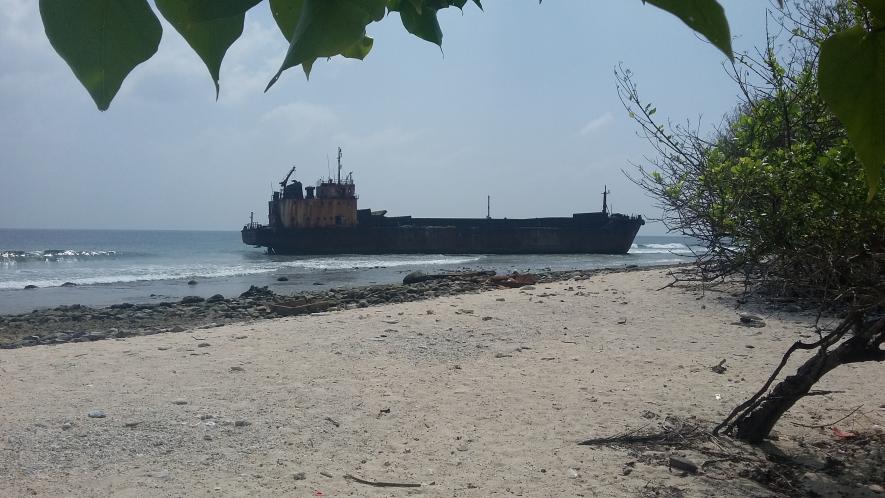
Photo by Ron Bastian
‘Why don’t we go to Lakshadweep?’ my brother-in-law Noush asked. That is how it began, a six-month string of phone calls, frequent visits to the Lakshadweep Administrative Authority Office at Willington Island, and talks with officers just to get a permit to travel to the island. When we would get a permit, no tickets were available. If tickets were available, the permits would have expired... What Actor Prithviraj said after shooting for Anarkali is true in letter and spirit, “You can go anywhere in the world, but if you want to go to Lakshadweep, it’s not that easy.”
But our toil and moil finally bore fruit as we got a permit to visit Kavaratti island and tickets for MV Corals, a cruise ship that was recently dedicated to the nation, at the same time. My wife Sabeena, our daughter Charu Gulnar, Sabeena’s mother, brother, sister-in-law, their kids, my cousin Adarsh and I were at the passenger terminal at noon and in our reserved bunks soon after. The economy class on a Lakshadweep cruise is more or less like a 2AC compartment on a train. OK, to be frank, it is a whole lot better than a train in terms of berth space and cleanliness. (A bunk is at the bottom of the cruise ship.) As departure was delayed, we rested, and I fell asleep. Suddenly, Noush and Adarsh woke me, saying the ship had cast off. I took it for a prank at first, but when I peered into the bullseye—they were right! We were in the middle of the Arabian sea; the very first sea voyage of our life had begun.
After seventeen hours in the company of dolphins flashing past, we reached Kavaratti in the wee hours. It was fascinating to see civilisation emerge, seemingly out of nowhere, in the form of bulbs glowing within homes. Later, I set out for the local store for supplies. An amused storekeeper heard me demand the very first—innocuous—item on my list: Bananas. He told me that a primary aspect of survival on the island is that bananas go to those diligent customers who have booked them in advance, maybe a week earlier. So, except coconut and fish, almost all essentials arrive from the mainland in ships or Manchus (small cargo vessels). Nearly everything on the island costs twice its price on the continent. The second surprise came within no time. When we asked the homeowner we were renting from for a lock and key before we step out on our first day in Lakshadweep, he could not stop laughing. He said nobody on these islands locks their homes. On Minicoy island, even doors are not that common. Curtains are considered more than sufficient. Thieves and robbers are fairy-tale characters as far as the islanders are concerned. Later, to our solace, we came across a locked building while we crisscrossed Kavaratti. It was the Lakshadweep Jail! Locals told us it remains mostly closed as inmates are rare since the crime rate is very low. Only three or four murders are recorded in the history of Lakshadweep, some of them attributed to mental illness.
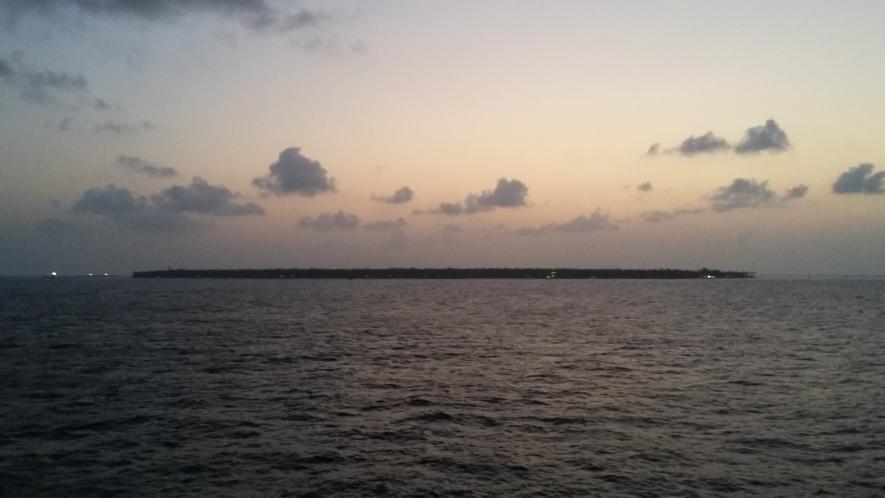
Photo by Ron Bastian
While going to a seaside eatery for breakfast, we saw one of the magnificent sights ever: a picturesque turquoise lagoon. The water was calm and clear. We swam and played in the sea without a worry about giant waves swallowing us, for there were none. It was like a thousand splendid swimming pools had combined just for us. No other swimmers were around. Then came a call from Abdulla Koya, a government officer whom we had met on ship, inviting us to tea. In the backyard of his beachside house, we experienced the unique delicacies and hospitality of the island. In the neighbourhood, we saw young people practising a traditional art form with great vigour as they prepared to perform at the coming Republic Day celebrations at Kavaratti.
On the following day was a get-together at the house of Yazar Arafat, a scuba-diving trainer who happened to be the canteen manager of the ship. We realised these warm welcomes were not exceptions. Invitations poured in on almost every day we spent there. As we were guests, we got served vegetable dishes exclusively, though fish is available aplenty. (“Rarity gives a charm...”). Scuba-diving in the company of multicoloured lagoon fish was another charm we experienced.
We have travelled much, but no other place remains so close to the heart. Our acquaintances in Lakshadweep have grown into friendships. When we think of the islands, only serenity and happiness come to mind. Yet, recently, we reminisced about those days for all the wrong reasons. The recent standoff between the newly-appointed Administrator and the people of Lakshadweep has seriously damaged peaceful life on the island cluster. The Administrator has kicked off a controversy with a series of “reforms” including the decision to implement the Goonda Act! The moves have raised plenty of eyebrows as even skirmishes are infrequent on these islands, let alone organised crime.
The forced closure of dairy farms has compelled people to buy milk powder, which is being shipped from Gujarat. I learned that not a drop of milk is available on Lakshadweep even as the Administrator unilaterally decided to lift restrictions on alcohol consumption. The air ambulance facility has also been curbed. A draft regulation envisages high-end “development” by earmarking areas for buildings, quarrying, mining, national highways, arterial roads, ring roads, major streets, railways, tramways, airports, the list goes on. All this is to happen on a tiny, thickly-populated and ecologically fragile tropical archipelago. The largest of the inhabited islands is Androth, with a landmass of 4.9 square km and a high population density of 2,312 per sq km.
Curiously, the administration is talking about highways and ring roads for a place where the usual mode of transport is bicycles, motorcycles and auto-rickshaws and where fuel is supplied once a month and is rationed at somewhere near 5 litres per month. There are allegations that the so-called development plan is a ploy to usurp the eco-region from the people and hand it over to corporate interests, as happened in Daman and Diu.
In the evenings, on this sublime coral isle, youngsters regularly ride their motorbikes through narrow concrete lanes and head towards the edges of the island. Until sunset, they gaze at the infinity beyond the vast seas. Their world ends here, everything they have is here—the rest is on the mainland. Public opinion on the island and the continent is definitely in favour of the people and their isles. Let us hope a just solution awaits on the horizon that the youngsters stare into every evening. Let it be so and the blue lagoon returns to its delightful tranquillity.
The author is a lawyer practising in the High Court of Kerala. He is currently a government pleader and has practised at the Supreme Court. The views are personal.
Get the latest reports & analysis with people's perspective on Protests, movements & deep analytical videos, discussions of the current affairs in your Telegram app. Subscribe to NewsClick's Telegram channel & get Real-Time updates on stories, as they get published on our website.









